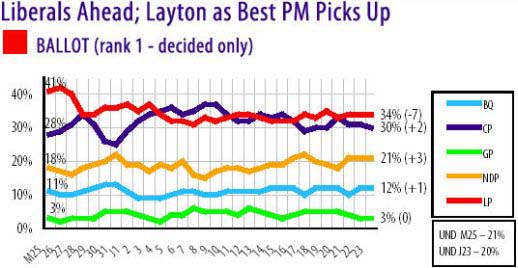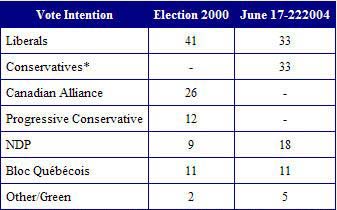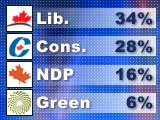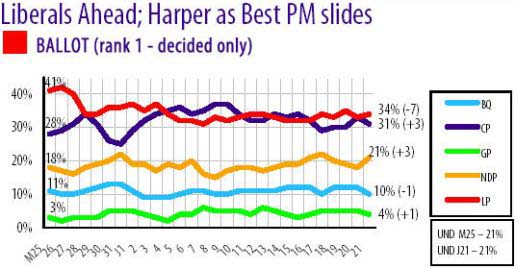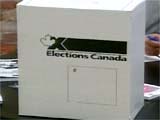At the beginning of the final week of the federal election campaign, as James Travers wrote in Saturday’s Toronto Star, “voters are more or less equally divided between unsatisfactory options.”
In VanRamblings’ home riding of Vancouver-Quadra, NDP candidate David Askew has mounted a valiant campaign in an otherwise Conservative riding. In recent years, in order to keep the ne’er-do-well Alliance from taking the seat, NDPers (including myself, much to the chagrin of my children, and my friends) have voted strategically, electing Liberal Stephen Owen to office.
But, perhaps not this time.
Last evening, Don, calling from David Askew’s NDP headquarters said,
“Look, I know David isn’t going to take the seat, and his vote in the riding is probably strong enough that Stephen Owen will lose, leaving Vancouver Quadra as another win for the Conservatives. But no matter what happens, the Conservatives are not going to win a majority; they’ll only be an interim government, and by the time another election is called — and that next election will happen soon, very soon — Canadians will see what a threat the Conservatives are, and vote them out.”
“In the meantime, we need your support, because the NDP needs the research money the government will grant us based on the national vote for the NDP, to hold the Conservatives’ feet to the fire.”
Am I convinced? Will I vote for David Askew? Or, will I vote strategically, and cast my ballot for Stephen Owen, who I know and like, and believe to be a decent person? Quite honestly, I don’t know the answer to any of those questions. I suppose, like many Canadians, I’ll wait to make my decision til the moment I find myself sequestered in the voting booth.
Child Tax Credit Reveals Harper’s Mindset
Writing in the Toronto Star, rabbler Linda McQuaig (that’s rabbler, as in rabble.ca) explores the regressive nature of Stephen Harper’s child tax credit, a legislative initiative that will succeed in …
“… reintroducing a programme that provides bigger benefits to the richest Canadians and no benefits whatsoever to those at the bottom. This is where Harper plans to put all that new money — $3.5 billion a year, once fully phased in.
Under his proposed scheme, a Bay Street executive with two children and an annual salary of $225,000, would receive a total benefit of $1,746 a year.
But if that executive gets laid off from his Bay Street job and ends up flipping hamburgers at McDonald’s, he’d lose his benefit entirely. Indeed, he’d receive absolutely nothing from the extra billions Harper plans to hand over to families — even though the executive-turned-hamburger-flipper would still have two children to feed and clothe.”
McQuaig writes: “As an economist, Harper is aware of what he’s doing.”
Tories May Scrap Air Canada Bilingual Requirement
As reported in the Globe and Mail today, Conservative leader Stephen Harper would change federal legislation to allow Air Canada to move its head office from Montreal to Toronto, party officials confirmed last night.
Harper is prepared to scrap the Air Canada Public Participation Act, which would allow the national carrier to no longer be forced to provide more bilingual services than other competing airlines.
“We’re talking about a level playing field,” said Jim Armour, the Conservative Party of Canada’s communications director. “Right now there are requirements that only apply to one (airline). It doesn’t apply to WestJet, it doesn’t apply to JetsGo.”
“We have said that the act should be eliminated. That doesn’t mean that bilingualism requirements would be eliminated on airlines,” Armour said. “What we are saying is that bilingualism requirements should apply equally across the industry.”
Although the Conservatives have said they would not change the basic principles of the Official Languages Act, they have indicated that with a Conservative government there would be an open debate on the question.
Bloc Québécois MP Benoit Sauvageau said abolishing the Air Canada Public Participation Act would be “really catastrophic.”
“It’s a concrete demonstration that if the Conservatives are elected it’s the end of French at Air Canada in spite of all efforts,” he said.
Voter Apathy Expected To Reach New Highs

|
What is wrong with Canadians? In what may prove to be the closest race in Canadian electoral history, a record number of Canadians are expected to opt out come June 28th.
Turnout countrywide has dropped steadily to 61.2 per cent from 75.3 per cent in four federal elections since 1988, and election experts say nearly half of us will not cast ballots this time.
“Fifty per cent is the symbolic number,” says Larry LeDuc, a University of Toronto political science professor who co-wrote Comparing Democracies: Elections and Voting in Global Perspective. Anything below that “undermines the legitimacy of governments.”
The Globe and Mail suggests that voter apathy is “an inexplicable global malaise.”
One supposes that voter apathy has nothing to do with right-wing talk show hosts, the Murdoch media empire and its ilk, and corporate media the world over doing everything in their power to convince citizens that politicians are corrupt, in the process succeeding in their mission to alienate a majority of the populace from engagement in the political process.
Or, that government’s failure to to protect workers, communities, and the environment; deep cuts in social programmes, turning the tattered remnants over to the private sector; an utter failure to address youth unemployment, which remains at twice the rate for the rest of the population; and the ongoing failure to provide adequate child care, thus responding to the needs of young families; none of this could possibly have anything to do with a pervasive sense of alienation felt by most Canadians.
Oh no, that couldn’t possibly be.

